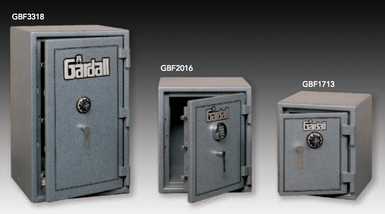
12 Things to Keep in a Safe at Home, Not at the Bank
Dec 3rd 2013
What should you keep in it? Here are a dozen suggestions:
1. Property insurance policies and agent contact information. You’ll need this information right away if your house suffers damage and you need to know how to file a claim.
2. Passports and original birth certificates. These can be a hassle to replace and will come in handy to establish identity when traveling with children.
3. A list of family doctors, prescription medications, and contact information for all pharmacies you use. You may need these to get new supplies of medications you use on a regular basis.
4. CDs or an external hard drive containing digital copies of all family photos. It’s a good idea to scan all older family photos and keep a digital copy of them as well. Your family memories in photographs are irreplaceable.
5. Safe deposit box keys. If you store valuables in a bank safe deposit box, you’ll want to make sure you keep the keys to it in a safe place.
6. Important papers related to investments, retirement plans, bank accounts, and associated contact information. You may also want to keep some cash on hand for ready access in an emergency.
7. Information on your outstanding debts, due dates, and contact information. It’s important to keep tabs on your finances and protect your credit, in the event you’re displaced by a fire.
8. Original Social Security cards. These can take time to replace and may be needed to establish eligibility for benefits.
9. Copies of your important legal documents, including powers of attorney, living wills, and health care proxies — both for yourself and for anyone else for whom you are designated attorney-in-fact or health care surrogate. Having access to these can help ensure the protection they were created to provide.
10. Copy of wills and all wills in which you are designated the executor. It’s important to have access to these as safe deposit boxes are typically sealed upon notification of the box owner’s death.
11. Valuables: Jewelry, coins, cash, etc. that you may want access to from time to time.
12. Spare Keys and titles to all vehicles. It helps to know where copies are in the case that you need them.